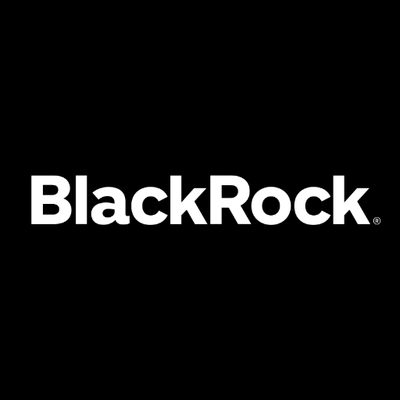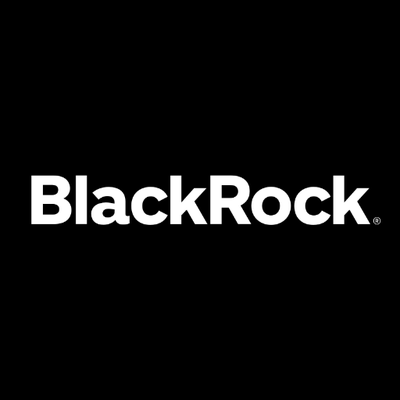All information is at 29 February 2020 and unaudited.
Performance at month end with net income reinvested.
| One month % | Three months % | One year % | Three years % | Five years % | Since Launch* % | |
| Sterling: | ||||||
| Share price | -9.5 | -16.1 | -19.8 | -18.4 | 13.2 | 44.7 |
| Net asset value | -7.3 | -11.5 | -12.7 | -9.8 | 17.2 | 56.3 |
| Benchmark (NR)** | -6.6 | -8.3 | -10.1 | 4.9 | 23.2 | 47.5 |
| MSCI Frontiers Index (NR) | -2.9 | -0.6 | 9.5 | 12.1 | 31.7 | 58.7 |
| MSCI Emerging Markets Index (NR) | -2.2 | -1.7 | 2.2 | 12.4 | 38.4 | 37.9 |
| US Dollars: | ||||||
| Share price | -12.3 | -17.1 | -23.0 | -16.1 | -6.3 | 19.1 |
| Net asset value | -10.1 | -12.6 | -16.2 | -7.3 | -2.9 | 28.4 |
| Benchmark (NR)** | -9.5 | -9.4 | -13.6 | 7.7 | 1.8 | 21.8 |
| MSCI Frontiers Index (NR) | -5.9 | -1.9 | 5.1 | 15.1 | 8.8 | 30.0 |
| MSCI Emerging Markets Index (NR) | -5.3 | -3.0 | -1.9 | 15.4 | 14.4 | 13.0 |
Sources: BlackRock and Standard & Poor’s Micropal
*17 December 2010.
** The Company’s benchmark changed from MSCI Frontier Markets Index to MSCI Emerging ex Selected Countries + Frontier Markets + Saudi Arabia Index (net total return, USD) effective 1/4/2018.
| At month end | |
| US Dollar | |
| Net asset value – capital only: | 140.85c |
| Net asset value – cum income: | 141.93c |
| Sterling: | |
| Net asset value – capital only: | 110.27p |
| Net asset value – cum income: | 111.11p |
| Share price: | 105.00p |
| Total assets (including income): | £268.7m |
| Discount to cum-income NAV: | 5.5% |
| Gearing: | nil |
| Gearing range (as a % of gross assets): | 0-20% |
| Net yield*: | 5.7% |
| Ordinary shares in issue: | 241,822,801 |
| Ongoing charges**: | 1.4% |
| Ongoing charges plus taxation and performance fee: | 1.4% |
*The Company’s yield based on dividends announced in the last 12 months as at the date of the release of this announcement is 5.7% and includes the 2019 final dividend of 4.75 cents per share declared on 06 December 2019 with a pay date of 07 February 2020. Also included is the 2019 interim dividend of 3.00 cents per share announced on 30 May 2019 and paid to shareholders on 28 June 2019.
**Calculated as a percentage of average net assets and using expenses, excluding performance fees and interest costs for the year ended 30 September 2019.
| Sector Analysis | Gross market value as a % of net assets* | Country Analysis | Gross market value as a % of net assets* | ||
| Financials | 27.3 | Indonesia | 14.5 | ||
| Consumer Staples | 15.2 | Thailand | 10.6 | ||
| Consumer Discretionary | 13.9 | Egypt | 10.2 | ||
| Real Estate | 12.3 | Saudi Arabia | 10.1 | ||
| Industrials | 11.8 | Vietnam | 10.0 | ||
| Materials | 10.9 | Philippines | 8.8 | ||
| Energy | 5.9 | United Arab Emirates | 6.1 | ||
| Communication Services | 3.5 | Malaysia | 4.5 | ||
| Health Care | 2.6 | Pakistan | 4.4 | ||
| Information Technology | 1.9 | Kazakhstan | 4.2 | ||
| Utilities | 1.8 | Turkey | 2.7 | ||
| —– | Pan-Emerging Europe | 2.3 | |||
| 107.1 | Qatar | 2.2 | |||
| —– | Ukraine | 2.1 | |||
| Short positions | -3.8 | Romania | 2.1 | ||
| ===== | Nigeria | 2.0 | |||
| PAN-Africa | 2.0 | ||||
| Poland | 2.0 | ||||
| Greece | 1.9 | ||||
| Chile | 1.8 | ||||
| Kenya | 1.6 | ||||
| Colombia | 1.0 | ||||
| —– | |||||
| Total | 107.1 | ||||
| —– | |||||
| Short positions | -3.8 | ||||
| ===== | |||||
*reflects gross market exposure from contracts for difference (CFDs).
Market Exposure
| 31.03 2019 % | 30.04 2019 % | 31.05 2019 % | 30.06 2019 % | 31.07 2019 % | 31.08 2019 % | 30.09 2019 % | 31.10 2019 % | 30.11 2019 % | 31.12 2019 % | 31.01 2020 % | 29.02 2020 % | |
| Long | 113.1 | 116.0 | 111.0 | 114.1 | 117.0 | 111.5 | 110.1 | 108.0 | 107.8 | 108.0 | 113.0 | 107.1 |
| Short | 6.6 | 6.6 | 8.8 | 8.1 | 5.1 | 4.2 | 4.1 | 2.2 | 1.7 | 1.0 | 1.1 | 3.8 |
| Gross | 119.7 | 122.6 | 119.8 | 122.2 | 122.1 | 115.7 | 114.2 | 110.2 | 109.5 | 109.0 | 114.1 | 110.9 |
| Net | 106.5 | 109.4 | 102.2 | 106.0 | 111.9 | 107.3 | 106.0 | 105.8 | 106.1 | 107.0 | 111.9 | 103.3 |
Ten Largest Investments
| Company | Country of Risk | Gross market value as a % of net assets |
| Bank Mandiri | Indonesia | 3.7 |
| United International Transport | Saudi Arabia | 3.6 |
| Astra International | Indonesia | 3.4 |
| Eastern Tobacco | Egypt | 3.0 |
| Vincom Retail | Vietnam | 3.0 |
| Bank of the Philippine Islands | Philippines | 2.8 |
| Emaar Development | United Arab Emirates | 2.7 |
| Orascom Construction | Egypt | 2.7 |
| Yanbu National Petrochemical | Saudi Arabia | 2.6 |
| Mobile World | Vietnam | 2.6 |
Commenting on the markets, Sam Vecht and Emily Fletcher, representing the Investment Manager noted:
The Company’s NAV returned -10.1%1 versus its benchmark the MSCI Emerging ex Selected Countries + Frontier Markets + Saudi Arabia Index (“Benchmark Index”), which returned -9.5% in February2. For reference, the MSCI Emerging Markets Index ended the month -5.3% and the MSCI Frontier Markets Index -5.9%2 over the same period (all performance figures are on a US Dollar basis with net income reinvested).
Frontier and Emerging Markets continued their volatile start to the year in February. After declining 4.2% in January, the Benchmark Index was down 9.5% in February. The last week of the month saw an especially sharp sell-off globally, driven by new cases of the Coronavirus accelerating outside of China and rising fears of a global recession. The Benchmark Index underperformed the MSCI Emerging Markets Index and MSCI USA Index, impacted by exposure to South East Asian markets which sold off sharply as the virus spread.
Our position in Vietnam was the largest contributor to returns in February driven by our holdings in information technology service company FPT (+5.9%), retailer Mobile World (-4.1%) and sugar producer Quang Ngai Sugar (-2.2%). Our holdings in Egypt were an additional contributor driven by Tobacco company Eastern Tobacco (-3.4%) and engineering and construction contractor Orascom Construction (-5.1%). Our holdings in Kazakstan, Halyk Savings Bank (-3.8%) and Kazatomprom (-6.5%) also contributed to relative returns.
The largest detractor from returns this month was our position in Greece, driven by our holding in National Bank of Greece (-31.3%). Our holding in Malaysia, particularly Sapura Energy (-26.6%), was an additional detractor as the market sold off on heightened political uncertainty after the Prime Minister Mahathir resigned. Not having any holdings in Kuwait was an additional detractor given the market held up better than many other countries in the wake of the global spread of the Coronavirus.
In response to the acceleration of the spread of the virus outside of China we have been de-risking the portfolio. Given the global nature of the virus we do not think markets have moved to sufficiently priced in the risk of a global recession. While we make no predictions about the spread of the virus itself, we are confident that the demand shock caused by the virus, directly and indirectly, is not currently priced by global markets. We are watching US credit markets where signs of distress would be a key indicator in our view of an impending global recession.
We have been reducing exposure to less liquid stocks given our longstanding concerns around the lack of liquidity in markets in times of stress. We have also reduced exposure to ‘carry’ countries such as Indonesia. We have further cut exposure to Turkey given signs of an intervention in the currency market as policymakers try to fight what we believe is an inevitable currency devaluation. The highest conviction country positions in the Company are the Philippines, Indonesia and Pakistan, while we remain under-weight Saudi Arabia, Malaysia and Kuwait.
Evidence that could temper our negative view would be large enough market declines suggesting this negative scenario is already priced, evidence that the virus is petering out and/or a decision by corporates and politicians globally to limit the restrictions they put in place in response to the spread of the virus. However, whilst we are concerned that global financial markets are too sanguine about this virus, we believe that emerging and frontier markets will emerge in a very strong position following this crisis. Once we pass through the pain point of tighter financial conditions, we believe that the better growth and yield dynamics and relatively lower leverage across emerging markets will shine though. So, whilst our positioning has shifted to be significantly more defensive, we expect this to change over time following our beliefs that emerging and frontier markets will come out relatively well.
Sources:
1BlackRock as at 29 February 2020
2MSCI as at 29 February 2020






































